Colombia Radio Type Approval- CRC Certification
Services For Radio & Wireless Devices
Understanding CRC Certification
The Comisión de Regulación de las Comunicaciones (CRC) mandates that radio and telecommunications equipment meet specific standards before entering the Colombian market. These requirements apply to satellite equipment, mobile terminal equipment (MTE), cellular devices (voice and data), and products that connect to the Public Switched Telephone Network (PSTN). CRC’s certification process ensures that devices meet Colombia’s technical standards for frequency allocation, interference prevention, and safety.
Regulatory Authorities
- CRC (Comisión de Regulación de las Comunicaciones) – CRC is the primary regulatory body overseeing the homologation process for telecommunications equipment.
- ANE (Agencia Nacional del Espectro) – ANE allocates and regulates the use of radio frequencies across Colombia to support various telecommunications services.
- MinTIC (Ministerio de Tecnologías de la Información y las Comunicaciones) – MinTIC establishes policies and manages processes for granting spectrum use permits, ensuring that Colombia’s telecommunications infrastructure can expand and evolve.
Certification Process and Requirements
CRC type approval does not require local representation or in-country testing. However, a technical document review is mandatory.
FCC reports/grants are accepted in place of local testing, though CE test reports are generally not accepted.
For modular equipment, modular test reports can be used, but not for end devices. Cellular devices have special labeling requirements, and for products outside the CRC’s approval scope, a No Homologation letter can be obtained to prevent import delays.
Key CRC Resolutions and Requirements
CRC certification involves meeting several technical resolutions for different telecommunications equipment:
- Resolution 087 (1997): Sets forth general telecommunications regulations.
- Resolution 4507 (2014): Updates Resolution 087 with additional technical requirements.
- Circular 060 (2007): Details the homologation process for landlines, satellite phones, and cellular devices.
- Resolution 711 (2016): Defines frequency band allocations and permissible usage parameters.
These regulations form the foundation of CRC’s certification process and ensure that equipment operates within Colombia’s technical and safety standards.
Safety Approvals for Electrical Equipment
In addition to CRC certification, products requiring safety approvals must comply with Colombia’s RETIE, RETILAP, and RETIQ standards:
RETIE (Technical Regulations for Electrical Installations) – Applicable to equipment like elevators, fire alarms, and Jacuzzis. Relevant resolutions include:
- 90708 (2014) – Updated technical requirements.
- 90907 (2013) – Clarifications on General Annex for compliance.
RETILAP – Technical regulations for lighting and street lighting applications.
RETIQ – Energy labeling regulations for electrical and fuel gas equipment.
Devices that connect to PSTN
Devices that connect to the Public Switched Telephone Network (PSTN), such as landline telephones, fax machines, modems, VoIP devices with PSTN access, and PBX systems, require CRC Type Approval in Colombia to ensure compliance with national telecommunications standards.
Non-PSTN devices, such as mobile phones, tablets, or other equipment that does not connect to the PSTN, generally do not require approval. However, manufacturers can request an official “No Homologation” letter from the CRC for non-PSTN devices to avoid potential customs issues during importation. This ensures clarity and a smoother entry process for all telecommunications equipment in Colombia.
Devices that connect to PSTN
Products approved under CRC Type Approval must comply with specific labeling requirements. Each homologated terminal will receive a unique registration code in the CRC database, formatted as:
CRC AA BB CCCC
AA: Represents the type of terminal approved (e.g., mobile phone, satellite device, etc.).
BB: Indicates the year the device was registered.
CCCC: A consecutive registration number associated with the specific device.
This code must be visibly displayed on the product label and in associated documentation to confirm CRC compliance.The labeling ensures traceability and verification of the device’s approval status in Colombia.
Related Services
Click here to know about the Approval Process for the Canadian Market
Click here to know about the SRCC certifications
Click here to know everything about Type Approval for Fiji
Click here to know everything about Type Approval for Hong Kong
Click here to know everything about India Approvals
Click here to know everything about PSE Mark
Click here to know everything about MIC Certificate
Click here to know everything about Type Approval for Malaysia
Click here to know everything about Type Approval for Russia
Click here to know everything about Type Approval for Saudi Arabia
Click here to know everything about Type Approval for South Africa
Click here to know everything about Type Approval for Singapore
Click here to know everything about Type Approval for South America
Click here to know everything about Type Approval for South Korea
Click here to know everything about NCC Certificate
Click here to know everything about BSMI Mark
Click here to know everything about Type Approval for USA
Company Strengths at a glance
Why C-PRAV?
C-PRAV offers end-to-end assistance for CRC certification, RETIE, RETILAP, and RETIQ approvals, ensuring your products meet Colombia’s regulatory standards. Our team manages the documentation, testing coordination, and regulatory communications, helping you achieve seamless compliance for your telecommunications and electrical products.
We Have Great Answers
Ask Us Anything
No, Colombia does not require local representation for CRC certification
In-country testing is not mandatory. The CRC accepts test reports from recognized international bodies, such as the FCC.
Some products may be exempt from CRC approval. To confirm exemption, you can request an official “No Homologation” letter from the CRC, which can also assist in preventing issues during customs clearance.
Yes, products that have obtained CRC certification must adhere to specific labeling requirements. This includes displaying the certification mark and relevant technical information as stipulated by the CRC.
Yes, devices operating on frequencies like 3500 MHz must meet updated CRC standards. Recent changes have also introduced rules for the 6 GHz band for Wi-Fi 6E and the 900 MHz band for mobile communications.
Yes, devices operating on the 6 GHz band for Wi-Fi 6E are limited to indoor use. Additionally, access devices must be plugged into a building’s electrical grid as per CRC rules.

